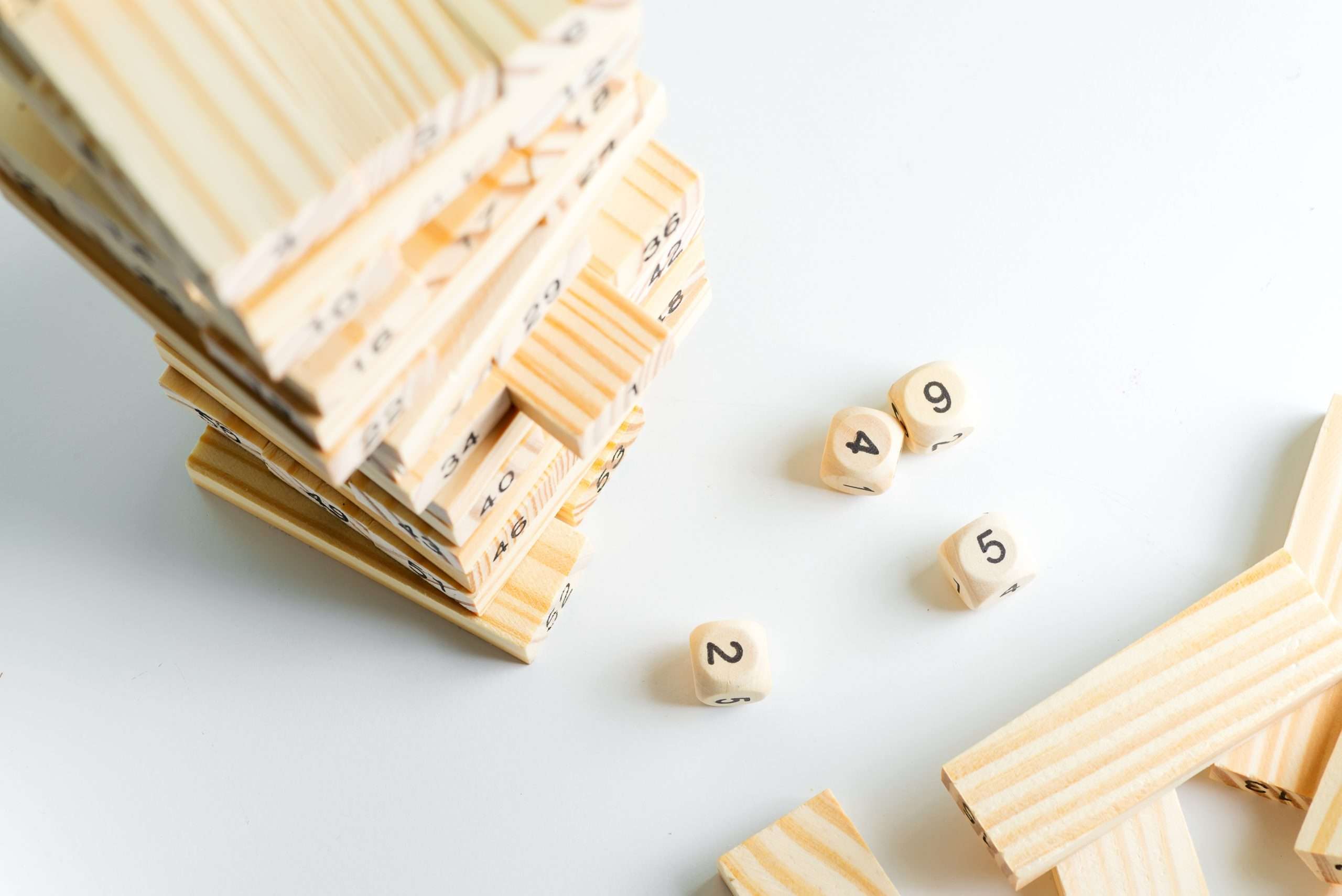Old school logic games
Logic games have come a long way since I was growing up in the 1980s. We, of course, had the Rubik’s cube and those wooden puzzles with a million bits that are all interlinked and a nightmare to put together.
Well, those and chess of course. But we never played chess at our house. We didn’t even own a chessboard. It was likely due to the fact that I grew up on a farm and we spent most of our time outdoors.
However, I like a good challenge from time to time and discovered some really neat brain games. Until a few years ago, I didn’t even know about these games at all!
I was desperate to add more fun to our school days. Juggling different ages and abilities can be overwhelming at times. It can be a challenge to homeschool multiple ages and be everywhere at the same time. These games came as an answer to prayer.
Maybe you are trying to do it all too and desperately need a break. Maybe one of your children needs more help than another and finishes too quickly.
Logic games are the answer. They are one-player games and are extremely engaging. I even pick one up from time to time and give my brain a good workout.
If you haven’t already added logic games to your homeschool toolbox, you really should. Below are 10 reasons why you need to add single-person logic games to your home school and examples of some of our favorite logic games.
Preschool and early elementary
Three Little Piggies: This brain game has a booklet with 48 different challenges. You need to set up the houses so the pigs can play outside. However, if the challenge involves the wolf, you need to help the poor piggies find a safe place in their homes.
| Preview | Product | Price | |
|---|---|---|---|

|
SmartGames Three Little Piggies - Deluxe Cognitive Skill-Building Puzzle Game featuring 48 Playful... | $38.99 | Buy on Amazon |
Little Red Riding Hood: Chose one of the 48 challenges (24 with the wolf and 24 without). Solve the challenge by trying to help Red Riding Hood make a path to her grandmother’s house.
| Preview | Product | Price | |
|---|---|---|---|

|
SmartGames Little Red Riding Hood Deluxe Skill-Building Board Game with Picture Book for Ages 4+ | $26.99 | Buy on Amazon |
Smart Car 5 x 5: In this little game, you have to build a car by solving one of the 96 challenges. Each challenge card has a picture with clues and you have to do the rest. There is only one correct answer to each challenge.
Elementary Age 6+
Logic Puzzles Usborne Activity Cards: 50 cards and a wipe-clean marker come in a handy little box. These are great to take on car rides or to throw in your bag to keep kids busy while waiting at a doctor’s office or another sibling’s soccer game.
Each card has a logic puzzle that needs to be solved. They are fun and challenging and can be done in any order.
| Preview | Product | Price | |
|---|---|---|---|

|
Logic Puzzles (Usborne Puzzle Cards) (Activity and Puzzle Cards) | $11.80 | Buy on Amazon |
50 Brain Games Activity Cards: These cards are also from Usborne and have different challenges than those listed above.
| Preview | Product | Price | |
|---|---|---|---|

|
50 Brain Games (Usborne Activity Cards) (Activity and Puzzle Cards) | $10.51 | Buy on Amazon |
Equilibrio: This game is actually marketed as a 5+ game and my younger kids have played this with success. The objective of the game is to build one of the 2D challenges into a 3D object that doesn’t collapse.
There are 60 challenges included in a spiral-bound booklet. Not only does this game encourage spatial reasoning, but it also helps a child build dexterity and perseverance.
| Preview | Product | Price | |
|---|---|---|---|

|
Foxmind Games: Equilibrio Spatial Logic and Dexterity Game, Build Gravity Defying Structures, 60... |
$34.95 |
Buy on Amazon |
RushHour Jr.: Use logical reasoning and planning skills to get the ice cream truck free. This game comes with 40 challenges cards, a game board, 15 blocking cars and trucks, an ice cream truck, and a travel bag.
Chose a challenge card, set up the traffic on the game board, and slide vehicles back and forth to set the ice cream truck free.
| Preview | Product | Price | |
|---|---|---|---|

|
ThinkFun Rush Hour Traffic Jam Brain Game and STEM Toy for Boys and Girls Age 8 and Up – Tons of... |
$17.65 |
Buy on Amazon |
Ghost Hunters: A spooky good time is to be had with the Ghost Hunters game. There are sixty ghost-revealing challenges to improve problem-solving, visual perception, and spatial insight.
Take a challenge card, place it on the game board, cover the game board with all of the game pieces and if all of the ghosts are lit up, you win! Some cards even come with clues. This game takes concentration and perseverance.
| Preview | Product | Price | |
|---|---|---|---|

|
SmartGames Ghost Hunters Travel Game for Kids and Adults, a Spooky, STEM Focused Cognitive... |
$16.99 |
Buy on Amazon |
Pirates Jr. Hide and Seek: A great game for pirate fans and non-pirate fans alike. There are 60 challenges on a game board, 3 symmetrical game pieces, and one with a hint (a compass rose). On the challenge card, there are several images.
These images are not to be covered up on the game board. Use the game pieces to cover the game board in a way that only leaves the challenge pictures showing. The challenge card reveals which way the compass rose is to be pointed in the final answer.
| Preview | Product | Price | |
|---|---|---|---|

|
smart games - Pirates Jr Hide & Seek | $34.17 | Buy on Amazon |
Penguins Pool Party: This is a compact travel game that uses spatial insight and planning to solve each of the 60 challenges.
To play, you choose a challenge from the booklet and turn the game board as indicated on the challenge card and place the penguins accordingly. The objective of the game is to fit the ice blocks around the penguins. There is only one solution to every challenge.
| Preview | Product | Price | |
|---|---|---|---|

|
SmartGames Penguins Pool Party Travel Game with 60 Challenges for Ages 6 - Adult | $24.00 | Buy on Amazon |
Architecto: This is similar to Equilibrio and uses the same game pieces. You can purchase the booklet separately if you already own Equilibrio. Architecto has 50 challenges that also get progressively more difficult.
The player builds 3D models of the 3D images in the booklet. It really challenges spatial reasoning and critical thinking.
| Preview | Product | Price | |
|---|---|---|---|

|
Foxmind Games: Architecto Spatial Logic and Dexterity Game, Smart Fun with Structures, 50 Smart... |
$28.99 |
Buy on Amazon |
Jump-in: The compact travel game that has hopping rabbits and sliding foxes. Use planning, problem-solving, and logic to solve one of the 60 challenges. The object of the game is to get the rabbits in the holes.
Set up the game board according to one of the challenges in the booklet. The rabbits have to jump over objects to get in the holes. You can slide the foxes for rabbits to jump over if needed.
| Preview | Product | Price | |
|---|---|---|---|

|
SmartGames Jump in’, a Cognitive Skill-Building Travel Puzzle Game for Kids and Adults Ages 7 &... |
$16.99 |
Buy on Amazon |
Elementary Age 7+
Laser Maze: This is a neat game that tests your logic skills. The objective of the game is to get the laser to hit a target by bouncing its way off of several other tokens.
There are 60 challenges that increase in difficulty. You set the game up according to one of the challenge cards. On the top left corner of the card, you can see which tokens need to be added to the game board. Use logical reasoning to place the missing tokens. If the laser hits the target, the challenge has been won.
| Preview | Product | Price | |
|---|---|---|---|

|
ThinkFun Laser Maze (Class 1) Brain Game and STEM Toy for Boys and Girls Age 8 and Up – Award... |
$32.41 |
Buy on Amazon |
Circuit Maze: This is a great logic puzzle for improving sequential reasoning and is a great introduction to how electric circuitry works. It comes with 60 challenge cards that range from beginner to advanced. Each card gives clues on how to set up the circuit and which tokens need to be added.
Once the circuit is completed, 1, 2, or 3 lights are lit up (depending on the challenge). The player will learn how to build series and parallel circuits and also more complicated combination circuits. This is a great logic game for kids who are interested in learning more about electricity.
| Preview | Product | Price | |
|---|---|---|---|

|
ThinkFun Circuit Maze Electric Current Brain Game and STEM Toy for Boys and Girls Age 8 and Up - Toy... |
$24.16 |
Buy on Amazon |
Solitaire Chess: Build up your chess muscles playing Solitaire Chess. Brush up your chess skills to beat your friends and siblings. This game comes with 60 challenges from beginner to expert.
You need to set up the game board as instructed by the challenge card. You are only allowed to use traditional chess moves to conquer the board. The objective is to capture all of the pieces.
One piece must be captured per move until the board is empty. This game uses spatial reasoning, logical deduction, and critical thinking skills. It will get your student ready to play against others with confidence.
| Preview | Product | Price | |
|---|---|---|---|

|
ThinkFun - 76325 Soitaire Chess - The Captivating Thinking Game with Chess Rules. The one Person... | Buy on Amazon |
Do you use logic games in your home school? Which ones are your favorites?
Last update on 2024-04-26 / Affiliate links / Images from Amazon Product Advertising API


